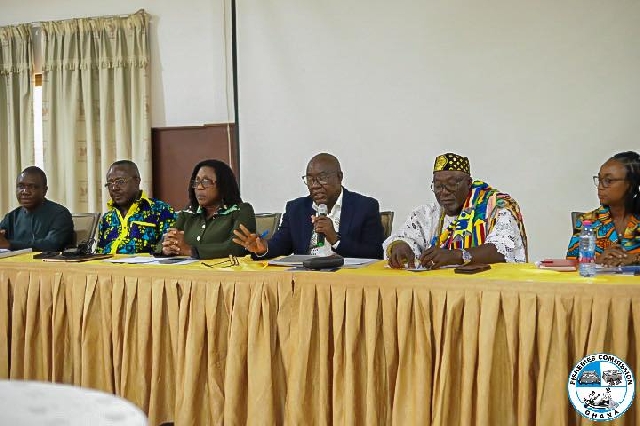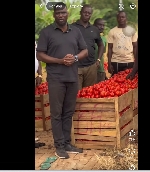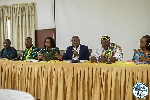Fisheries Commission engages stakeholders on Ghana’s first Inland Fisheries Management Plan
 Stakeholders at IFMP 2026–2030 emgagement
Stakeholders at IFMP 2026–2030 emgagement
The Fisheries Commission, under the Ministry of Fisheries and Aquaculture Development, has held a two-day stakeholder workshop in Accra to review the draft Inland Fisheries Management Plan (IFMP 2026–2030), Ghana’s first comprehensive blueprint for the inland fisheries sub-sector.
The meeting, which brought together participants from the southern sector—comprising the Volta, Greater Accra, Central, and Western Regions as well as the Akosombo enclave of the Eastern Region—took place from September 10–11, 2025, at the Mensvic Hotel.
The workshop sought to review the zero draft of the IFMP, gather stakeholder inputs to refine the document, build consensus on sustainable strategies for managing inland fisheries, and ensure inclusivity across all actors in the value chain.
Delivering the welcome address, Prof. Berchie Asiedu, Deputy Executive Director (Technical) of the Fisheries Commission, reaffirmed the Commission’s commitment to safeguarding inland fisheries, describing them as a vital resource that underpins livelihoods, food security, and community well-being.
He emphasised that challenges such as overfishing, habitat degradation, and climate change can only be addressed through collaboration, innovation, and a shared vision.
Speaking on behalf of the Chief Director of the Ministry of Fisheries and Aquaculture Development (MoFAD), Ms. Rosemary Abbey, Director of Finance and Administration, stressed that the development of the IFMP represents more than a policy exercise.
“It is a commitment to safeguarding our natural heritage and ensuring equitable benefits for all who depend on these resources,” she noted.
Dr. Lawrence Issah Braimah, who chaired the sessions, commended both the Commission and stakeholders for their efforts. He highlighted the importance of “projectising” the IFMP, explaining that converting the plan into implementable projects would facilitate collaboration and attract investment for successful execution and long-term impact.
The workshop also featured solidarity messages from partners and interactive group sessions, during which participants proposed practical inputs to refine the draft plan.
Discussions underscored the need to strengthen enforcement and to empower women and youth in the fisheries value chain.
Source: classfmonline.com/Cecil Mensah
Trending Business

Mahama directs purchase of glut tomatoes and onions from Asante Akim North farmers for SHS feeding
11:11
MASLOC to publish names of loan defaulters after final warning
10:34
Brazilian Ambassador pledges support for Ghana’s cocoa sector ahead of Afro-Brazil Festival 2025
08:07
Fisheries Commission engages stakeholders on Ghana’s first Inland Fisheries Management Plan
03:06
Regulatory costs threatens job creation, SME expansion in Ghana: ILAPI and FUNDALIB warn
13:13
GIPC pledges support to Guinness Ghana amid rising illegal imports
04:36
World Bank disburses $360m to support Ghana’s economic recovery and resilience
03:48
President Mahama: Nkoko Nketenkete project to launch in Oct
19:01
V/R: AGI marks 30 years with bold vision for 24-hour economy
13:48
NEIP, MoFA partner to support agric entrepreneurs under 'Adwumawura' programme
16:41



